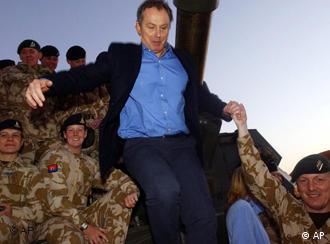
posted by k
Time for a quiz. (Most blogs have them).
There are just three questions and no prizes.
1. Who said this?
"My father fought in the last great European war. I was born in 1953, a child of the Cold War eara, raised amid the constant fear of a conflict with the potential to destroy all of humanity. Whatever other dangers may exist, no such fear exists today. Mine is the first generation able to contemplate the possibility that we may live our entire lives without going to war or sending our children to war. That is a prize beyond value and this agreement is a great contribution to it.
"The drawing of this new European landscape has not been easy, as many in this room know better than I. Stability and prosperity are never assured, they can never be taken for granted, but throughout central and eastern Europe political and economic miracles are being wrought. People raised on suffering and pain sense stability and prosperity can now lie ahead."
2. and who said this?
"The collapse of the Berlin Wall acted as a catalyst for a reappraisal of the type of Armed Forces that the UK would require to meet the security challenges which emerged to fill the vacuum of a post bipolar world. The peace dividend from the end of the Cold War was announced in the 1990 review "Options for Change", which sought an 18% reduction in manpower.
"Yet already a new strategic reality was upon us: the Iraqi invasion of Kuwait later that year confirmed that there were situations further afield which might require a military resolution. Closer to home the former Yugoslavia disintegrated into civil war and ethnic cleansing.
"This new security context was articulated in the 1998 Strategic Defence Review. It called for expeditionary Armed Forces that were deployable, agile and adaptable."
3. and who said this?
"There are two types of nations similar to ours today. Those who do war fighting and peacekeeping and those who have, effectively, except in the most exceptional circumstances, retreated to the peacekeeping alone.
"Britain does both. We should stay that way. But how do we gain the consent to do it?"
There's a clue in the picture. The last two are from Tony Blair's speech aboard HMS Albion on 12th January, 2007. And the first is from Tony Blair's speech in Paris on 27th May, 1997.
It's strange to contemplate the change from hope to horror. And it's strange to observe so casual and careless an attempt to rewrite history.
Labels: Blair, history, peace, speech, war




